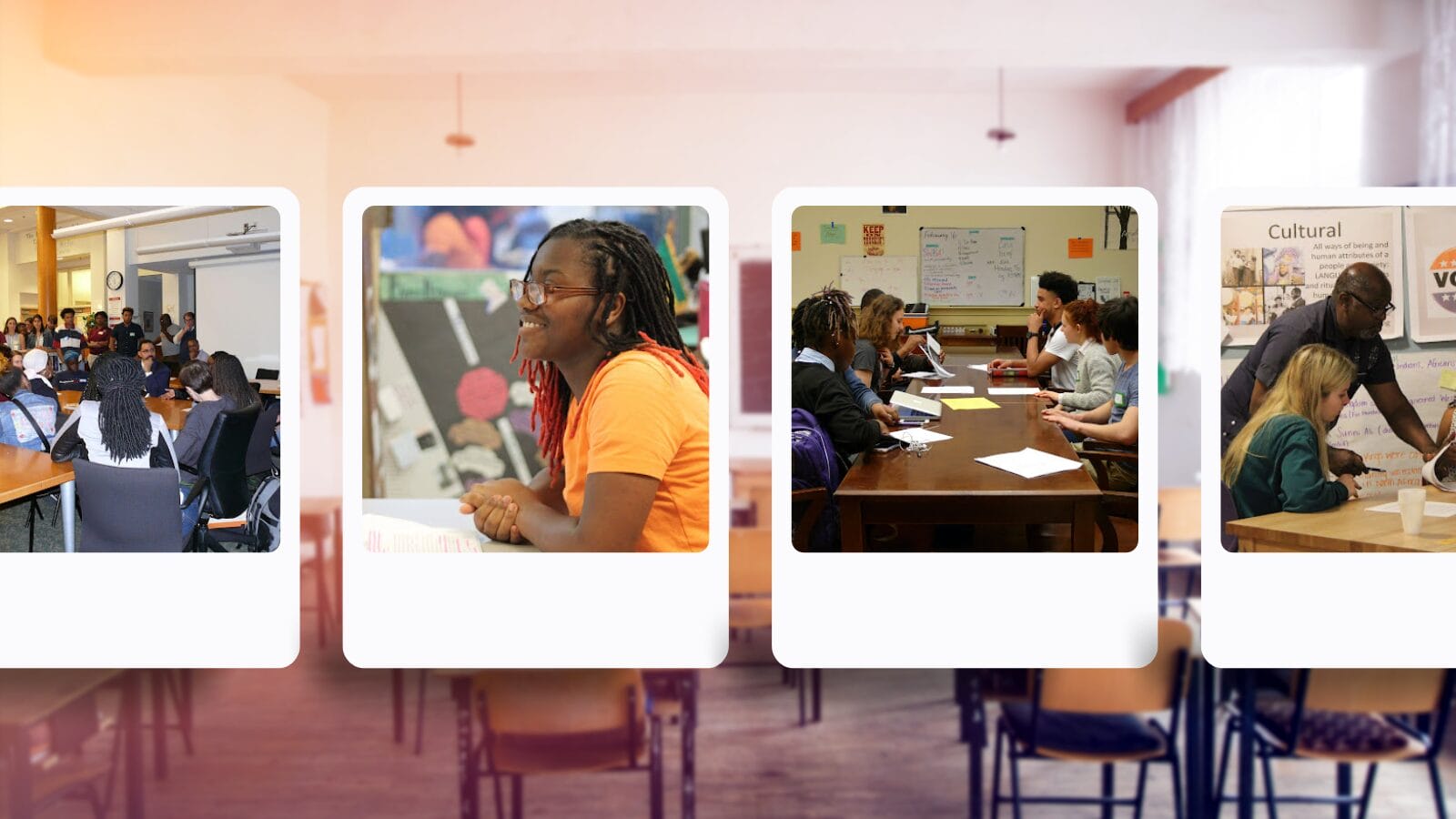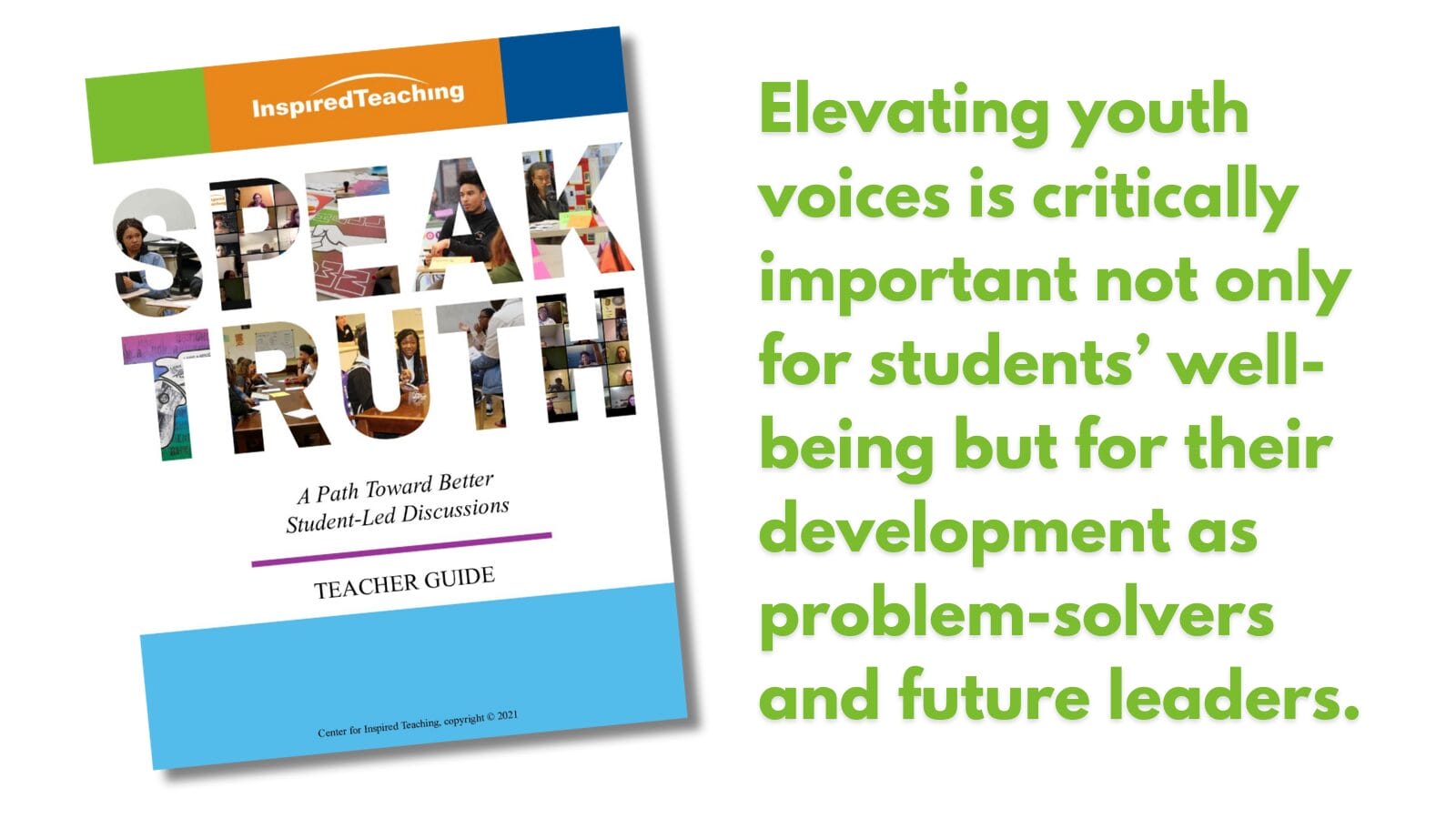
September 2, 2024
By Aleta Margolis, Founder and President
Prefer audio? Listen to the Hooray For Monday podcast to hear this week’s post!

Last month at the Democratic National Convention in Chicago, vice-presidential candidate Tim Walz was introduced during the ceremonial roll call by his former student. I was particularly drawn to the student’s statement that Walz “taught us how to talk about global issues with respect, curiosity, and kindness, even — and especially — when we disagreed.”
This moment resonated because the vice-presidential nominee of a major political party is being celebrated for his work as a teacher. And the way in which he was introduced elevated to the national stage the conversation around what good teachers do.

As we launch into this new school year, fears are high among teachers in all parts of our country when it comes to allowing students to discuss difficult or controversial topics in the classroom.
Not only do teachers fear negative responses from parents and policymakers, they also worry about potential repercussions such as losing their jobs or certifications. According to RAND’s 2023 State of the American Teacher Survey, 65% of teachers reported refraining from discussing topics surrounding political and social issues. According to an EdWeek survey released this summer, 58% of teachers surveyed have already decided against discussing the upcoming election, reflecting widespread uncertainty and concern about addressing sensitive topics.
We have plenty to do in school that pertains to the curriculum. Why add stress by bringing politics into the schoolhouse? – so the thinking goes. As my distinguished guest Judge David Tatel and I discussed last week, it is not the teacher’s job to proselytize. However, it most certainly is our job as teachers to teach our students how to investigate, and talk about the issues that affect them, in their communities and in their country.
Think about it this way: If students don’t learn to tackle difficult topics in school, when the stakes are still relatively low, when will they learn to do so? What will happen when today’s students are adults out in the world trying to navigate an increasingly divided country if they haven’t had the opportunity to practice these skills?

It’s not easy to support students in the having of difficult conversations. But it is possible. Now is a good time to download Inspired Teaching’s Speak Truth Guidebook, a simple, research-backed toolkit for teaching your students to lead one another in dialogue about the issues of our time. As the Guidebook points out, our goal as educators is not to change students’ viewpoints; it is to enable them to listen to one another from a place of curiosity, which is the highest form of respect. Further, our goal is to humanize, rather than villainize, those with whom we disagree. And the starting point for that is learning to listen.
Here are 5 ways to get started:
Model not knowing. As early as possible in the school year, demonstrate for students what a curiosity-based approach looks like in the face of something new. When you don’t know the answer to a question, take the opportunity to say aloud, “I don’t know. Let’s find out!” Then invite your students to help you find the answer.
Invite speakers to share first-person perspectives. This is a great way for students to engage their empathy so they can imagine, even for a moment, the world as seen through someone else’s eyes. A guest speaker in the flesh is so much more compelling than a video or a written text because the speaker can answer questions in real-time. And in a media-saturated world, real human interaction jolts us into a different kind of awareness.
Let students discuss what matters to them. Whether you begin class with a warm-up in which students share one thing on their minds, devote a few hours a month to student-led discussions on topics of their choosing, or find creative ways to weave their interests into the content you’re already teaching, showing students that you value what matters to them builds trust, makes your instruction relevant to their lives, ignites engagement, and builds speaking and listening skills.
Focus on process not product, conversation not debate. School can be a place that rewards the right answer, the strong argument, and the flawless delivery. But talking about difficult topics is messy, and requires practice. Young people who are working to understand and communicate their own values and positions need space to make mistakes — to say the wrong thing, to repair misunderstandings, to learn why a comment may be hurtful even if it wasn’t intended as such. So when you are teaching students to be good listeners, avoid formal evaluation. Create space for self-reflection. Help students develop an awareness of their own growth in things like: listening without interruption, responding to a comment directly rather than seizing an opportunity to say something unrelated, asking follow-up questions to deepen understanding, and making personal connections to what others have to say.
On the big issues, prioritize problem-understanding over problem-solving. If two students are bickering with each other over seats at a table, focus on problem-solving. But when students want to discuss big things like the climate crisis, conflicts abroad, poverty, racial justice, etc., they can easily become overwhelmed by the weight of trying to find solutions. Point out that effective solutions grow from understanding the true nature of a problem. Encourage students not to jump to “solution-mode” on these big issues, but to do some research, search for context, and strive for deeper understanding.
As you step into this new school year and tackle this important work, remember Inspired Teaching is right here by your side. As always, we’ll support you through our free monthly Institutes; Guidebooks; library of teaching activities; and of course each weekly issue of Hooray For Monday.
Thank you, principals and teachers, for all you do.
For additional insights, resources, and information on Inspired Teaching teacher and youth programming, subscribe to the Hooray For Monday newsletter!
Hooray For Monday is an award-winning weekly publication by Center for Inspired Teaching, an independent nonprofit organization that invests in and supports teachers. Inspired Teaching provides transformative, improvisation-based professional learning for teachers that is 100% engaging – intellectually, emotionally, and physically. Our mission is to create radical change in the school experience – away from compliance and toward authentic engagement.
